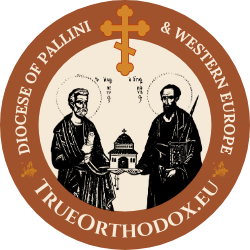There was an Elder who Ate Only One…

From the Lausaic History by Palladius Bishop of Helenopolis of Bithynia and later Bishop of Aspuna of Galatia
There was an Elder who ate only one liter of bread (Roman liter = 327 grams) a day. He broke dried bread that he had and put it into a big ceramic jar, deciding to eat only as much as his hand could draw out of the jar daily.
This same Elder playfully told us that was able to grab more broken pieces of the dried bread at once, however, he could not get his hand then out of the narrow mouth of the jar. To not eat at all he said, was not permissible by the publican (the human need).
About The Author… Bishop Palladius
Born: Around 363 AD.
Died: Around 430 AD.
He was first a monk in Egypt, then became Bishop of Helenopolis in Bithynia (Asia Minor). Later, due to involvement in the controversies surrounding St. John Chrysostom, he was exiled but later became Bishop of Aspuna in Galatia.
He was a devoted supporter of St. John Chrysostom, which influenced his writings and actions during the Christological controversies of his time.
His Main Works
Lausaic History, named after Lausus, the chamberlain of Emperor Theodosius II, to whom the work was dedicated.
Content: A collection of biographies and anecdotes of early Christian ascetics, especially the Desert Fathers and Mothers of Egypt, Palestine, Syria, and Asia Minor.
One of the most important sources for the study of early Christian monasticism. It mixes firsthand experiences (from Palladius’ travels) with stories he heard, and it’s considered historically reliable for the period.
Dialogue on the Life of St. John Chrysostom
Written during Palladios’ exile in defense of St. John Chrysostom, his close friend and spiritual mentor.
It is presented as a dialogue between a deacon and a bishop, this work defends the sanctity and orthodoxy of Chrysostom against his enemies.
It offers valuable information on Church politics, the Origenist controversies, and the persecution of faithful clergy under imperial pressure.







